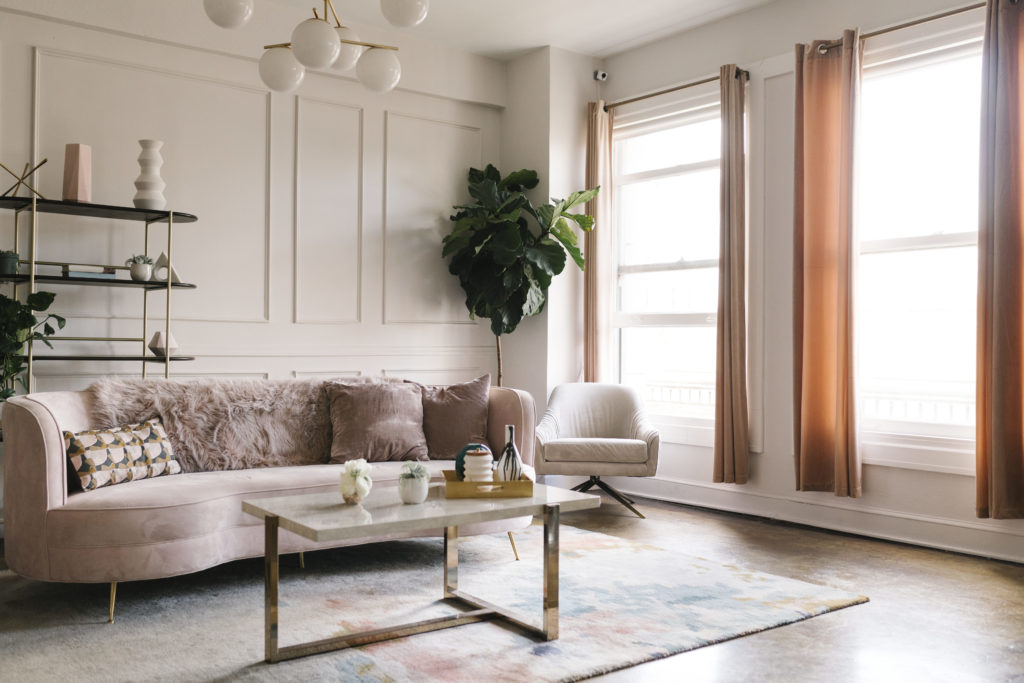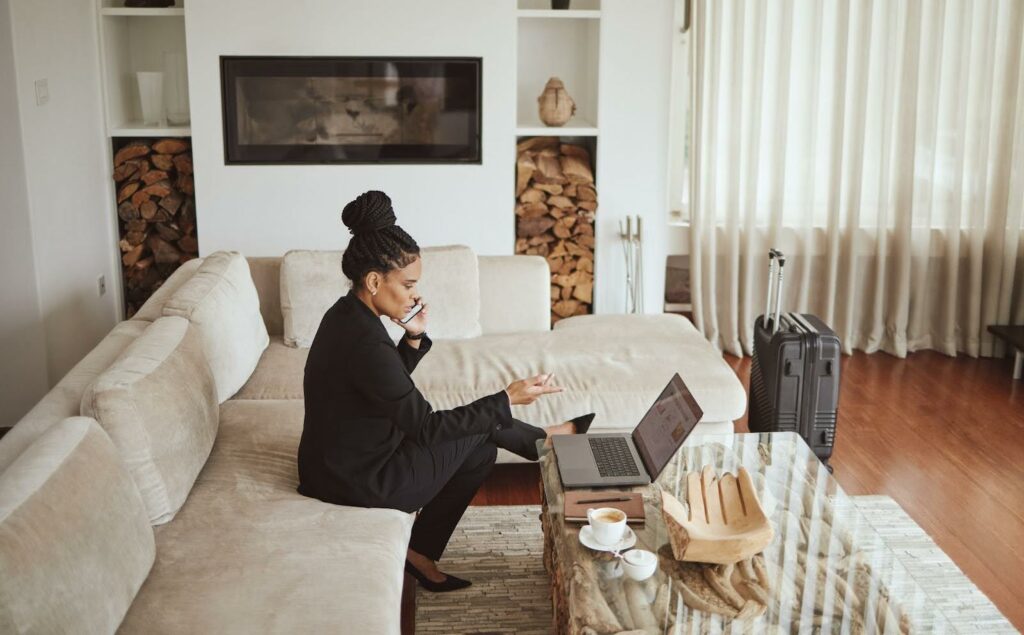 What does proper management mean for a rental property, and how much does it influence bookings and revenue? I’m often asked by friends, acquaintances, or potential clients: “I have an apartment in such-and-such area. Should I list it on Airbnb?” There is no one-size-fits-all answer. Success varies—some properties do better with short-term rentals, some don’t. The answer hinges on two main factors we’ll discuss below:
What does proper management mean for a rental property, and how much does it influence bookings and revenue? I’m often asked by friends, acquaintances, or potential clients: “I have an apartment in such-and-such area. Should I list it on Airbnb?” There is no one-size-fits-all answer. Success varies—some properties do better with short-term rentals, some don’t. The answer hinges on two main factors we’ll discuss below:
The first factor concerns the property itself. Where exactly is it located? On which floor? Is it renovated? When was it last updated? Does it have a view? How many square meters is it? What amenities and facilities does it have? All these factors obviously play a significant role in the property’s prospects.
The second factor, which we will focus on in this article, involves the management of the property. Assuming the property itself meets the necessary conditions for short-term rental, whether it will earn more than long-term rental depends greatly on the level of management. Thus, the answer I give is: “If you manage the property well, it’s worth considering short-term rental.”
But what exactly does “proper management” mean for a short-term rental property? How is it defined? What must one do to ensure maximum returns? We will delve into this question in detail below:
1. Perfect listing
Given the good condition of the property as explained above, the next step is to perfect the listing on platforms like Airbnb, Booking, Vrbo, etc. What does a perfect listing entail? It means creating an attractive and comprehensive description tailored to the audience you aim to attract. For example, if the property suits couples due to its size and location/view, the description should have a romantic flair. If targeting business travelers, the style should be professional, ideally highlighting the business amenities available. Similarly, for families, adapt the tone accordingly. Also, a perfect listing involves an accurate title and a complete listing of all amenities and facilities provided such as toiletries, hair dryers, etc. Lastly, the photographs of the property should be taken by a professional photographer specializing in real estate – this is more important than you might think! Let’s explore why:
2. Professional photos

Many of us own the latest smartphones with excellent cameras and believe we take superb photos. While they may indeed be beautiful, they cannot match the level of a professional photoshoot. The professional equipment of a photographer can cost upwards of €10,000—from cameras and lenses to lights and tripods needed to properly stage a property shoot, to the post-processing software used to adjust colors, contrasts, and lighting. I can’t tell you how many times I’ve seen a property increase its bookings (and sometimes its prices!) when the manager decided to replace amateur photos (which were often quite beautiful) with professional shots. The choice of time, lighting, angle, exposure, and balance all play crucial roles in the final result. Therefore, the rule is: Even if you have the latest iPhone, Galaxy, or Pixel, always prefer a professional photographer! The investment pays off quickly with increased bookings.
3. Proper property pricing
Pricing is a major factor. What does proper pricing mean? How do I determine how much to charge per night for each season? There are two approaches here. One is to research the competition in the area, looking for similar properties in terms of size and amenities, and to price around the average—perhaps slightly higher or lower. This market research can be done manually on rental platforms or using tools like AirDNA or Lighthouse, which collect daily booking data. In the initial months of listing a property, you might price slightly below the competition—not too low, as that can backfire. As you gain bookings and reviews, gradually increase the price until you find the “sweet spot” where raising prices begins to negatively impact booking flow, then stabilize there.
The second option is to use dynamic pricing tools such as Pricelabs or Beyond, which automatically adjust prices based on real-time market data. These tools are particularly useful for properties listed on Airbnb, although Airbnb’s own smart pricing tool is often avoided by hosts because it tends to suggest very low prices. A good dynamic pricing tool checks competitors in the property’s area and considers various factors like occupancy rates, pricing, local events, and even the weather, adjusting prices daily for many months ahead—something that’s nearly impossible to manage manually. Analysis from us here at Hosthub shows that properties using Pricelabs have seen an average increase of 15% in annual turnover, with over 95% of properties experiencing a boost in revenue. However, it’s important to note that dynamic pricing isn’t suitable for all properties. While it works well in competitive, urban areas, it’s less effective in remote or non-touristic locations. If you have a house on top of a hill all by itself, dynamic pricing might not make sense.
4. Immediate responses to visitor inquiries
The algorithms of Airbnb and other platforms take dozens of parameters into account to decide how highly to rank a property in search results. From reviews and booking rates to how frequently the manager updates descriptions and changes prices, many factors play a role. However, one of the most critical criteria is how quickly the host responds to inquiries, whether before or after booking. As a general rule, maintaining a good response rate in this area means answering inquiries within 20 minutes before a guest arrives and within 10 minutes during their stay. These numbers might sound demanding, but they are significant and do affect a property’s rankings. We see a substantial difference in a property’s performance when the host responds quickly compared to the typical one-hour response time suggested by Airbnb. Of course, it’s not always possible to be available for immediate responses, especially at night. But the best practice is to respond as quickly as feasible or to wait for technological solutions like an AI assistant from Hosthub, which might already be available by the time you read this.

5. Ensuring high-quality reviews
As mentioned earlier, reviews are among the main criteria used by platforms like Airbnb and Booking.com to determine how much to promote a property. Although directly influenced by factors outside our control, the quality of the services we offer and the amenities available at the property indirectly affect guest reviews. Airbnb requires hosts to maintain an average rating of 4.8/5 to qualify for or keep their Superhost status, and achieving this should be a goal for every host. It’s important to note that on Airbnb, the review reflects on the host (whether manager or owner), whereas on Booking.com, it applies to the property. Regardless, always strive to offer the best possible service, and the reviews will follow. Occasionally, a guest might leave a lower rating despite having enjoyed their stay—don’t let it get to you. The short-term rental market is a marathon, not a sprint, and over time, reviews generally accurately reflect the quality of a property and its management.
6. Providing full amenities
Earlier, we discussed the importance of a property offering the essentials for a stay. Now let’s delve a bit deeper into what this entails. It’s not the same for everyone. A guest at a €50 per night apartment will have different expectations than one staying at a €500 per night villa. In any case, the absolute essentials for any accommodation type, beyond mandatory linens and towels for each guest, include:
Consumables:
- Double the amount of toilet paper you think might be needed for the duration of the guests’ stay
- A fresh roll of kitchen paper
- Soap and shampoo/shower gel – options range from individual hotel-type packets to large bottles in the shower, but the most cost-effective and guest-friendly option is a wall-mounted dispenser inside the shower.
- A bottle of water in the fridge at minimum, and you can add more from there.
- Sugar and packets of coffee and tea – ideally with a few packets of powdered milk
Non-consumables:
- Fast Wi-Fi – the faster, the better
- A hairdryer
- A smart TV, ideally with screen-casting capabilities
- Air conditioning and heating
- Reliable hot water, ideally with a solar option so guests don’t have to remember to turn on a water heater
- Basic kitchen utensils – whatever you would want to find in a holiday accommodation
- Kitchen appliances such as an electric stove, microwave, toaster, kettle, and a filter coffee machine
- An iron with an ironing board – not absolutely necessary, but often very useful
If you’re catering to business travelers or digital nomads, consider investing in a desk with an ergonomic chair and a 24-inch monitor with the necessary cables. For guests from outside Europe, think about including plug converters.

7. Enhancing the guest experience
Imagine you’re a traveler arriving at your holiday destination after a long and exhausting journey. You’re carrying luggage, the kids are fussy, and you urgently need a hot shower—but you can’t find the key to the accommodation, and the host isn’t responding to calls or messages. That’s hardly a pleasant start to a holiday, right?
No one wants to be in that situation. To avoid such scenarios, it’s crucial to send correct and detailed check-in instructions in advance, whether through the Airbnb app, email, SMS, or using a specialized Guest Experience tool like those found in the relevant section on Hosthub. Guest experience apps not only provide check-in instructions but can also assist the guests with various other needs during their stay, such as:
- Requests during their stay (extra pillow, late check-out, problem reports, etc.)
- Recommendations for dining, car rentals, transfers, tickets for museums and archaeological sites, etc. Good guest experience apps offer the ability to book these services directly through the app (and also provide a commission to the manager)
- Instructions for using home appliances with photos and videos
- Ordering food or drinks to the house through partnered restaurants and bars
- Immediate communication with the host or manager for anything needed
The points outlined above are the basics I suggest to those who ask, “What does proper short-term management mean?” But certainly, they are not the only aspects. Each host or manager will find their own path in the journey of short-term rentals and will discover new ways to improve the level of services and the guest experience. The important thing is for all of us to ask ourselves one thing daily, and with this, we move forward: “If I were a guest in my accommodation, what kind of experience would I want to have?”



